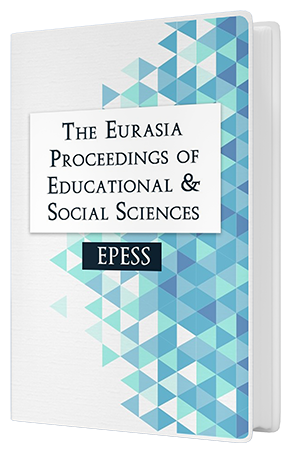USING COMPLEXITY THEORY TO CONSTRUCT A DIGITAL LEARNING ENVIRONMENT FACILITATING EXPERIENTIAL LIFE EDUCATION PROGRAMS ON ELEMENTARY SCHOOL TEACHERS AND STUDENTS
Keywords:
Complexity, experiential education, life educationAbstract
E-learning has become a global trend, however, the entire globe is facing the problems of social disruption and disorder, overwhelmed with sensual desire, and filled with distorted sense of ethics and morality, it has a strong need to guide the younger generation to understand the meaning and purpose of life through life education. Therefore, there is an urgent need to understand how to develop, implement, and promote experiential life education programs with technology support environment. Complexity theory has been pervasively applied in education and management to adapt multiple environmental changes and multidisciplinary collaboration in recently research. Evolving from chaos theory, complexity theory not only keeps the unpredictability and nonlinearity in education models but also develops mutual-adaptation, co-evolution, dynamic interaction and self-organization. Therefore, it is appropriate to use this theory to construct educational models in complicate educational areas. The study used complexity theory as the theoretical basis and utilized a series of high-definition digital TV programs as teaching materials to develop life experiential education courses model and understand its effectiveness for elementary school teachers and students. The study was conducted by observing volunteer classes to understand the design of digital learning. One unit of a national popular TV program, “Let’s Play Stories”, was be utilized as the teaching materials. Attitudes and behaviors of teachers and students during participating, suggestions from teachers, feelings and learning of students, and interactions were investigated. Purposive sampling was used to collect five schools in northern and central Taiwan. Qualitative research methodology was the major research approach to construct the teaching model. The results of the study showed that four themes, mutual-adaptation, co-evolution, dynamic interaction and self-organization, could be found in qualitative information from teachers, students and volunteers. The study help us to understand how to establish digital learning model and effectiveness of using complexity theory to construct a digital learning environment facilitating experiential life education programs on elementary school teachers and students in real teaching sites.Downloads
Published
Issue
Section
License
Copyright (c) 2015 The Eurasia Proceedings of Educational and Social Sciences

This work is licensed under a Creative Commons Attribution-NonCommercial-ShareAlike 4.0 International License.
The articles may be used for research, teaching, and private study purposes. Any substantial or systematic reproduction, redistribution, reselling, loan, sub-licensing, systematic supply, or distribution in any form to anyone is expressly forbidden. Authors alone are responsible for the contents of their articles. The journal owns the copyright of the articles. The publisher shall not be liable for any loss, actions, claims, proceedings, demand, or costs or damages whatsoever or howsoever caused arising directly or indirectly in connection with or arising out of the use of the research material. All authors are requested to disclose any actual or potential conflict of interest including any financial, personal or other relationships with other people or organizations regarding the submitted work.




